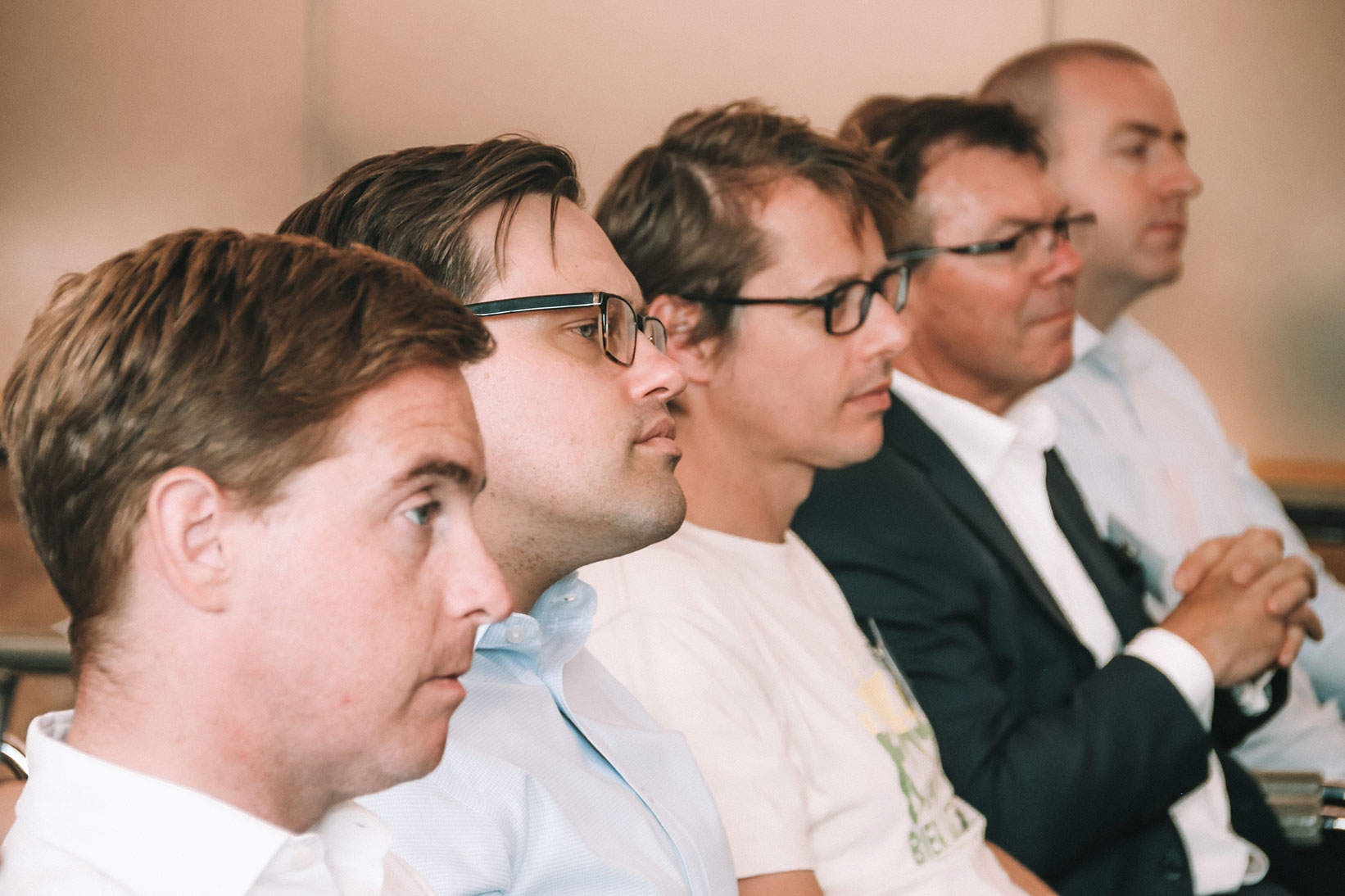Visions for Change: radical thinking from Lord Jones of Birmingham
Every university should have one - a professor with experience in business and government, and effective in promoting radical ideas for solving the challenges of the day.
Lord Jones of Birmingham, UWA Adjunct Professor and former Director General of the CBI and Minister of State for Trade and Investment in the Blair government, explored what he saw as the biggest dangers for the Developed World in this year’s Distinguished Speaker Series talk.
Before tackling his main subjects for the evening, Lord Jones made an observation on climate change as it related to the ‘plastics problem’.
Adverse environmental impacts would continue to grow unless consumers everywhere radically changed their habits and organised to drive change by forcing businesses and governments to act more decisively. Using the claim that 80% of global plastic waste ended up in just ten rivers, all of which are in developing countries, he offered a radical suggestion. Citing Extinction Rebellion and The Carbon Literacy Project as exemplars of new well-supported organisations in the developed world, Lord Jones had an idea of his own: make UK government overseas aid budget spending conditional on measurable change in plastic consumption and recycling in recipient countries.

Lord Jones insisted that Education and training was best provided by universities as part of lifelong learning programmes in competition with new commercial providers
The first of the major dangers for the 21st Century Lord Jones introduced was the increasing mismatch between the taxes paid by individuals in their working lifetimes and the costs of their pensions, health care and housing in retirement. The NHS was a political time bomb in that 75% of the NHS budget is spent on over 65s, Lord Jones claimed that a way had to be found for this major user group to pay for services rendered, noting that many were sitting on the windfall of long-term, irrational house price inflation but would likely not vote for any political party with a ‘3rd age users pay’ policy.
“Social intercourse is a dying phenomenon” introduced the next danger. The hugely successful innovation of social media provided many benefits, but Lord Jones also saw damaging side effects.
He said that face to face communication - so important for learning, debate and development of consensus - had been largely replaced by the incessant low-level use of the binary “like” and “don’t like”, which polarised opinion. The impersonal nature of social media, especially in the hands of the young, facilitated the texting to the world of anonymous opinions one would never express in a social setting. This resulted in unhealthy social division generally and in specific cases, bullying and exclusion.
The third danger was the power of the technology and social media companies. Noting that the ‘Big Five’ – Amazon, Apple, Facebook, Microsoft and Google were collectively equivalent to the fourth biggest national economy, Lord Jones insisted that the tech giants must meet governments half way to redress the serious unintended consequences of personal digital communications platforms in a highly-connected world.
Question time produced a lively discussion on a wide range of subjects. Lord Jones insisted that Education and training was best provided by universities as part of lifelong learning programmes in competition with new commercial providers. However, he claimed that funding policy “needed radical change” if the benefits of lifelong learning were to be open to all.
In a question about the declining quality of political leadership he advocated a work experience qualification for candidates seeking political office.
A crossbench life peer such as Lord Jones certainly played an important role in championing change, but one couldn’t help wonder how the dangers he identified and other crucial issues might be addressed with the urgency and creativity they deserved.
The Distinguished Speaker Series event was generously hosted by Friends Trustee Kristy Duane and City law firm, CMS.
- Friends Trustee Sandy Barblett, Georgia Langoulant
- Guest Speaker Lord Jones with event host and Friends Trustee Kristy Duane
- John Anderson, Liz Malone, Alison Salt
- John Keet, Joshua Bamford
- Lizzy O'Shea, Pamela Watson
- Lord Jones, Edi Skipworth and former WA Agent General Kevin Skipworth
- Natalie West, Lord Jones
- Robert Adams, WA Agent General Commodore Mike Deeks, Jenny Deeks
- Rodney Buckland, Siobhan Hammond